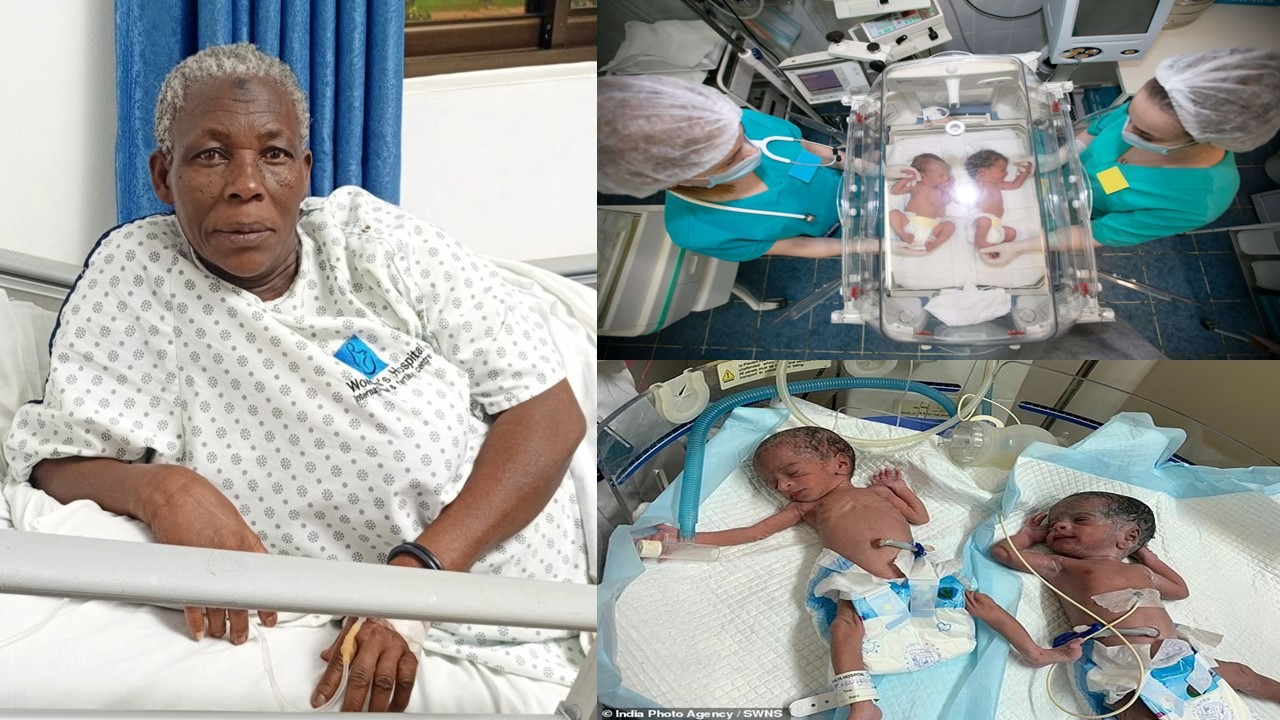In a remarkable turn of events, a 70-year-old Ugandan woman, Safina Namukwaya, has become one of the world’s oldest new mothers by giving birth to twins. The joyous occasion took place on Wednesday at a medical facility in the capital city, Kampala, where Namukwaya had undergone fertility treatment. This extraordinary feat has captured global attention and sparked discussions on the possibilities and challenges associated with late-life pregnancies.
A Miracle Unfolds:
The birth of the twins, a boy and a girl, is being celebrated as a miracle, considering Namukwaya’s advanced age. The medical team at the Women’s Hospital International Facility Center facilitated the delivery through a Cesarean section. Arthur Matsiko, the facility’s spokesperson, provided reassurance about Namukwaya’s health, stating that she is not only healthy but also actively moving around the hospital.
Fertility Treatment Breakthrough:
Namukwaya’s journey to motherhood at 70 involved fertility treatments, specifically in vitro fertilization (IVF). IVF is a medical procedure where an egg and sperm are combined outside the body and then implanted into the uterus. This assisted reproductive technology has allowed women to conceive who may face challenges due to age or other fertility issues.
Notably, this is not Namukwaya’s first experience with IVF. In 2020, she gave birth to a daughter at the same facility when she was in her late 60s, establishing her as a mother for the second time at an age when many might consider parenthood unattainable.
Challenges and Controversies:
The birth of twins to a woman in her seventies raises ethical questions and concerns about the health risks associated with late-life pregnancies. While Namukwaya’s story is undoubtedly extraordinary, medical professionals and ethicists may debate the ethical implications of pursuing pregnancy at such an advanced age. The potential health risks for both the mother and the infants, as well as the long-term consequences, will likely be topics of scrutiny and discussion.
A Global Phenomenon:
Namukwaya’s case adds to a growing trend of women around the world giving birth later in life. Advances in fertility treatments, coupled with changing societal norms and priorities, have enabled individuals to pursue parenthood at ages that were once considered improbable.
Conclusion:
Safina Namukwaya’s journey to becoming a mother of twins at the age of 70 is undeniably a unique and extraordinary story. The marvels of medical science, combined with a mother’s determination, have defied age-related expectations and delivered a moment of immense joy. As the world marvels at this remarkable event, discussions surrounding the ethical dimensions and medical implications of late-life pregnancies are likely to intensify, prompting reflections on the evolving landscape of parenthood in the 21st century.




